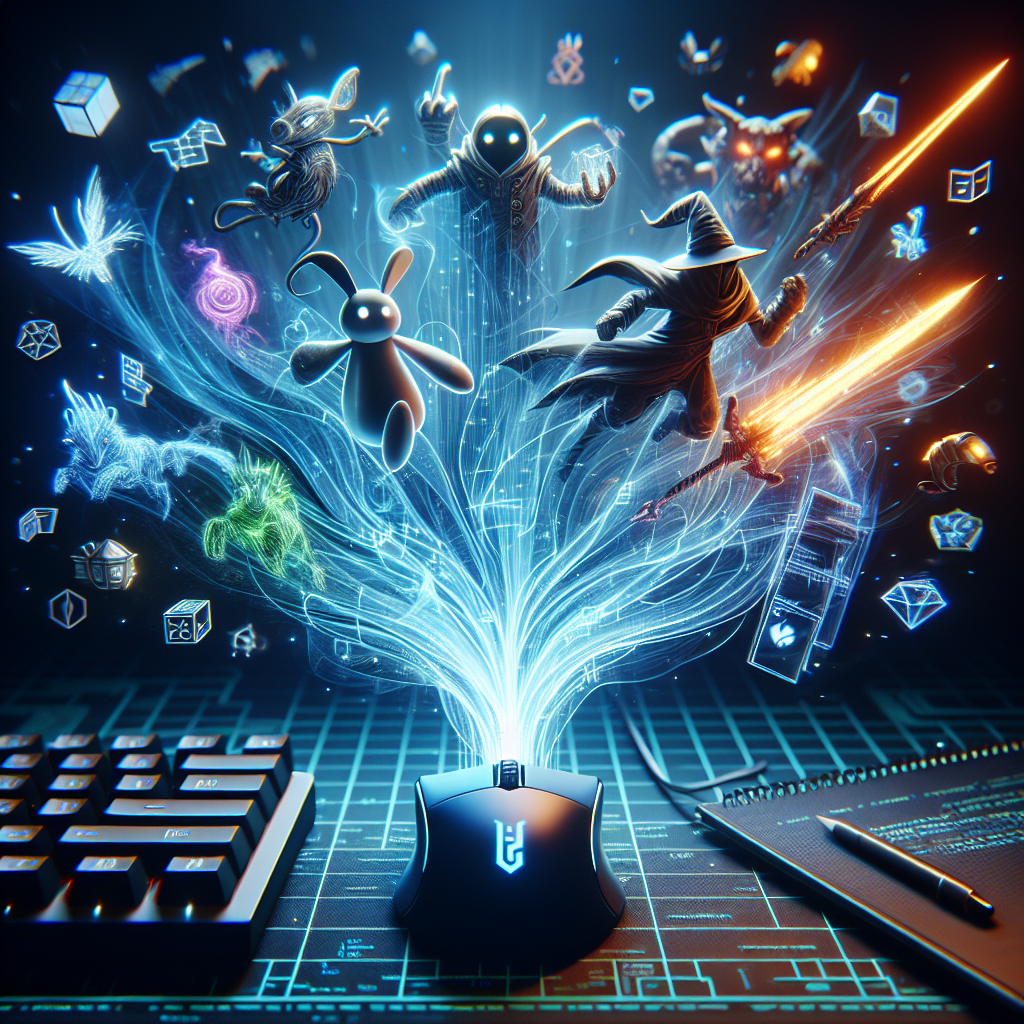Game On: A Beginner’s Guide to the Top Game Design Software
The world of video game design has never been more accessible, thanks to a plethora of software tools that cater to both beginners and seasoned developers. Whether you’re a budding game designer looking to create your first project or a hobbyist eager to explore the realm of gaming, having the right tools at your disposal can make all the difference. Below is a guide to some of the top game design software available today, perfect for beginners looking to dive into game development.
1. Unity
Overview:
Unity is one of the most popular game engines in the world, renowned for its versatility and user-friendly interface. It supports both 2D and 3D game development, making it an excellent choice for a wide range of projects.
Key Features:
- Cross-Platform: Build games for multiple platforms, including PC, mobile, consoles, and VR.
- Asset Store: Access to a vast library of assets, scripts, and tools, which can help speed up development.
- Community Support: A large community of developers provides numerous tutorials and free resources.
Why it’s Great for Beginners:
Unity’s visual scripting tool, Bolt, allows beginners to create games without extensive coding knowledge. Its extensive documentation and tutorials make it easy to learn, even for those new to programming.
2. Unreal Engine
Overview:
Developed by Epic Games, Unreal Engine is a powerhouse in the gaming industry known for its stunning graphics and high-fidelity visuals. It is widely used in AAA game development but is approachable for new developers.
Key Features:
- Blueprint Visual Scripting: This system allows users to create game logic without writing code.
- Photorealistic Rendering: Ideal for creating visually impressive environments and characters.
- Marketplace: Offers a range of assets, plugins, and tools crafted by other developers.
Why it’s Great for Beginners:
With its powerful visual scripting capabilities and extensive library of learning resources, Unreal Engine allows beginners to create visually stunning games without needing an in-depth understanding of programming from the outset.
3. Godot Engine
Overview:
Godot is an open-source game engine that has been gaining popularity due to its lightweight design and ease of use. It supports both 2D and 3D game development and has a dedicated community that contributes to its growth.
Key Features:
- Flexible Scene System: Allows for easy organization of game components.
- Node-Based Architecture: Makes it easy to create complex game mechanics.
- Integrated Scripting Language (GDScript): Designed specifically for game development, similar to Python.
Why it’s Great for Beginners:
Godot’s intuitive interface and comprehensive documentation make it an ideal choice for beginners. Additionally, being open-source, it’s free to use without any royalties.
4. Construct 3
Overview:
Construct 3 is a powerful, browser-based game engine focused on 2D game development. It’s particularly well-suited for those who want to create games without deep programming knowledge.
Key Features:
- Drag-and-Drop Interface: Users can create games visually using a simple interface.
- Instant Preview: Test games in real-time as you build them.
- Export Options: Easily publish games to HTML5, mobile, and desktop platforms.
Why it’s Great for Beginners:
Construct 3’s visual programming makes it accessible for beginners, allowing them to focus on design rather than coding. Its online platform also means no downloads are needed, and updates are automatic.
5. RPG Maker
Overview:
For aspiring creators of role-playing games (RPGs), RPG Maker provides a robust platform tailored specifically for this genre. It allows users to create intricate stories, characters, and worlds with minimal programming.
Key Features:
- User-Friendly Map Editor: Create expansive worlds with ease.
- Event System: Design complex interactions and storylines without coding.
- Asset Packs: Pre-made characters, music, and environments make the design process quicker.
Why it’s Great for Beginners:
RPG Maker provides a straightforward way to develop narrative-driven games, catering to those who prioritize story over technical complexity. The large community and abundant tutorials make it easy to find support.
Conclusion
Embarking on a journey in game design is both exciting and challenging, but with the right tools, anyone can bring their creative visions to life. Whether you choose Unity, Unreal Engine, Godot, Construct 3, or RPG Maker, each platform offers unique capabilities tailored for beginners. Dive in, experiment, and most importantly, have fun creating your games! Game On!




